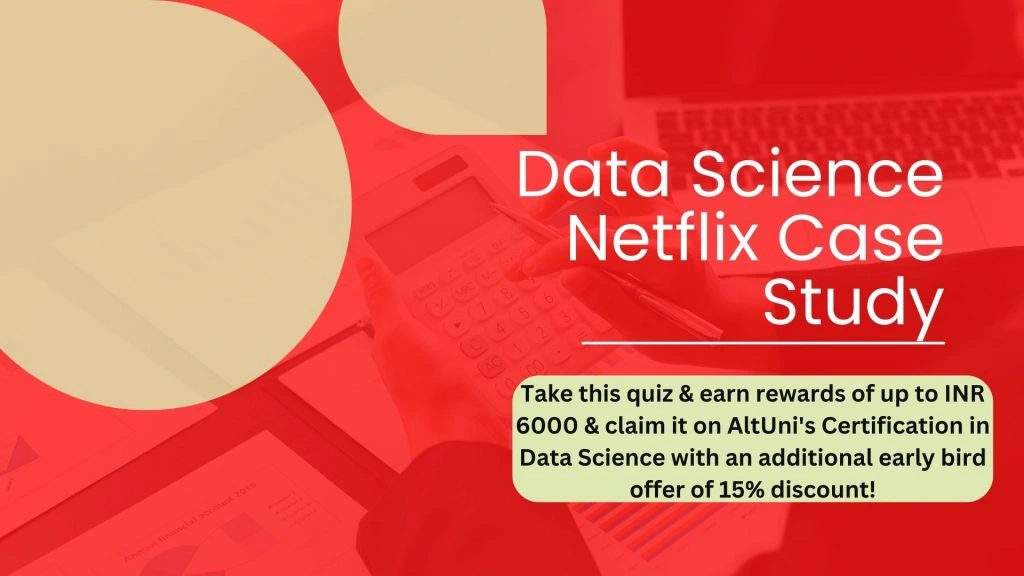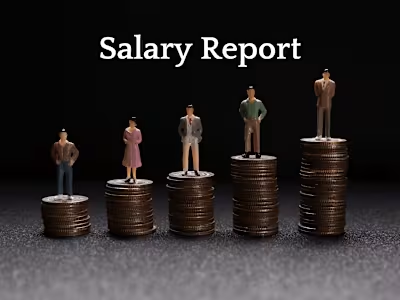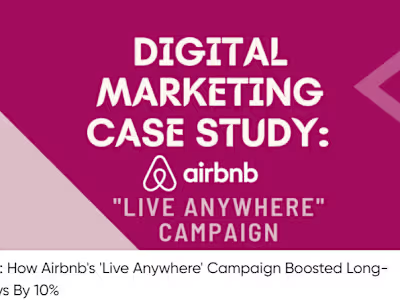How Netflix Uses Data Science: A Case Study Quiz

Here’s your chance to build a career in Data Science. Do you always wonder how the data is being used by big firms? What could be the technology behind it? How do companies like Netflix, Spotify, and Youtube know what kind of content you like to watch? If these things interest you, then you should definitely solve this Netflix case study! Answer the quiz based on the case study which will help you show unique and amazing data science use cases in your portfolio. The best part? You’ll receive rewards of up to INR 6000!
You might want to check AltUni’s Certification in Data Science where you’ll learn from industry experts, work on a live project & get a chance to visit Dubai!
Now, On To The Case Study!
On January 16, 2007, Netflix began to roll out a new feature: subscribers could now stream movies instantly on their browser without having to wait for the red envelope in the mail. This was a watershed moment for Netflix and the entertainment industry. Since then, much has changed. Netflix now provides over 1 billion hours of streaming every month to 48 million subscribers in over 40 countries. This level of participation generates massive amounts of data.
Adoption Of Data Science By Netflix
Netflix is all about recommending the next content to its user. The only question they would like to answer is ‘How to personalize Netflix as much as possible to a user?’. Though it is a single question, it is almost everything Netflix aims to solve. The recommendation is embedded in every part of their site.
Recommendation Systems
Their primary asset being technology & data, they turned to a recommendation system. It is a form of information filtering before the data reaches users. There is no doubt that these systems use the users' search history & recommend content based on their preferences & likings.
The second important usage of these systems is taking information from the user as input. This information can be in the form of previous product usage or ratings given to the product. It then uses this data to anticipate how highly the customer will rate or prefer the product. This is called collaborative filtering.
Diving deeper into it, several data points have been collected and a detailed profile of each subscriber has been generated. It's hard to believe but, the profile of a subscriber created by Netflix is much more detailed than the information or preferences provided by the subscriber at the beginning of their Netflix usage.
The recommendation begins the moment you log onto Netflix. The initial screen you view after logging in, for example, contains ten rows of titles that you are most likely to watch next. Another key aspect of their individuality is their awareness. They inform their audience about how they are adapting to their preferences & want their clients to provide comments while building trust in their system. They explain why they believe you would watch a particular title & use things like, 'Based on your interest in...,' 'Your taste preferences formed this row,' and so on. Another aspect of personalization is similarity.
Check out AltUni’s Certificate Program in Data Science to enter this scorching hot career & work on a live project & get a chance to visit Dubai.
Netflix portrays similarity broadly, including similarities across movies, members, genres, and so on. It employs terms such as 'Similar titles to watch quickly,' 'More like...,' and so on. One of the most significant parts of the Netflix recommendation engine is search.
The study says the rate of customer retention is increasing on Netflix because 80% of users follow the recommendation, and the recommended show or movie is streamed. Netflix’s ability to collect and use data is the reason behind its success. It results in better customer retention per year.
Other Netflix Usages Of Data Science
The usage of big data & Data Science doesn’t stop with the recommendation. Big data and certain analysis techniques are used for custom marketing, say, for example, to promote a TV show or a movie Netflix releases (which might have various promos or trailers). If a viewer watches content that is more centered on women, the viewer will get a trailer of a movie that is more focused on female characters in that movie.
However, the same may be said about many other things, such as someone exclusively viewing films directed by certain people or actors or actresses. Because Netflix already knows its customers' interests and sensitive likes and dislikes, this in-depth analysis or report on each client minimizes the time required to research marketing techniques.
This is nothing more than tracking subscribers' actions and gathering data from them as a result. One fairly traditional method, which Netflix also employs, is to solicit input from users. The comments are subsequently translated into a rating, and the team works on system improvement or recommendations.
Like this project
Posted May 20, 2023
An idea for a new content format - "Case Study Quiz" was formed when the community wasn't responding to the regular content or quizzes.
Likes
0
Views
19





